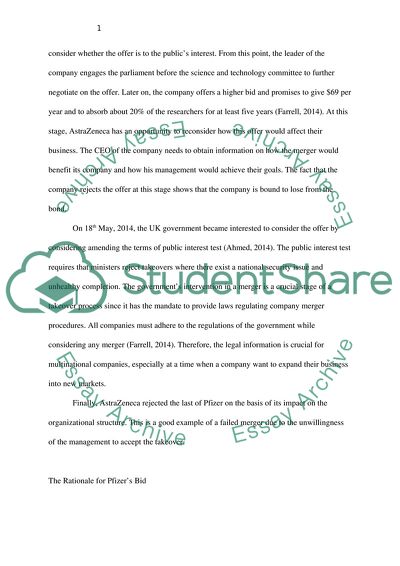Cite this document
(“Pfizers Unsuccessful Takeover of Astrazeneca Essay - 5”, n.d.)
Pfizers Unsuccessful Takeover of Astrazeneca Essay - 5. Retrieved from https://studentshare.org/finance-accounting/1664872-case-study
Pfizers Unsuccessful Takeover of Astrazeneca Essay - 5. Retrieved from https://studentshare.org/finance-accounting/1664872-case-study
(Pfizers Unsuccessful Takeover of Astrazeneca Essay - 5)
Pfizers Unsuccessful Takeover of Astrazeneca Essay - 5. https://studentshare.org/finance-accounting/1664872-case-study.
Pfizers Unsuccessful Takeover of Astrazeneca Essay - 5. https://studentshare.org/finance-accounting/1664872-case-study.
“Pfizers Unsuccessful Takeover of Astrazeneca Essay - 5”, n.d. https://studentshare.org/finance-accounting/1664872-case-study.


